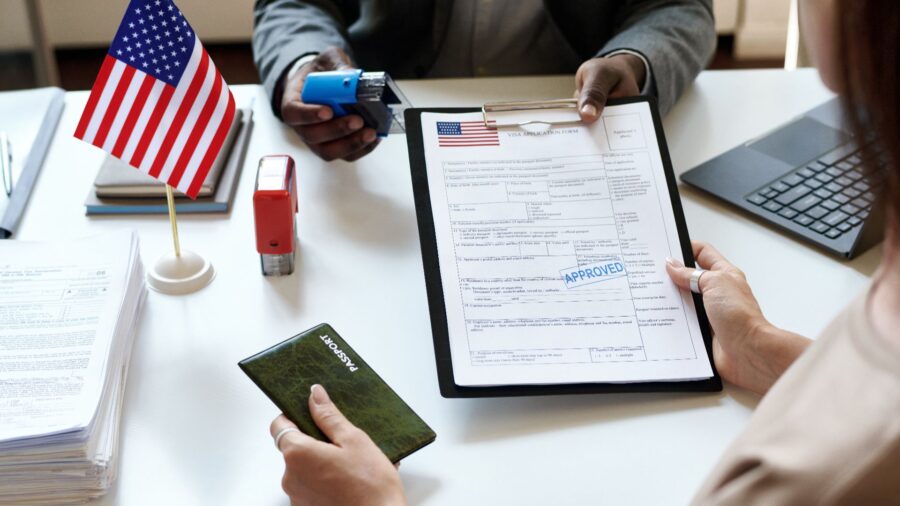The recent U.S. government shutdown has once again left many immigrants, visa holders, and applicants uncertain about their cases. When the federal government halts operations, immigration services don’t completely stop — but many important parts of the system slow down or pause, creating confusion, missed deadlines, and stress for families and workers alike.
At Rebecca Black Law, P.A., we’ve seen firsthand how government shutdowns disrupt the immigration process. Below, we explain how the shutdown impacts immigrants and what proactive steps you can take to protect your status and stay on track with your immigration goals.
Understanding the U.S. Government Shutdown
A government shutdown occurs when Congress fails to approve funding bills or a continuing resolution to keep federal agencies running. As a result, many government offices are either closed or operating with limited staff.
Some agencies — like the U.S. Citizenship and Immigration Services (USCIS) — are fee-funded, meaning they can continue working since applicants pay filing fees that sustain operations. However, other critical agencies that rely on annual appropriations, such as the Department of Labor (DOL) or Department of State (DOS), face interruptions that ripple through the immigration system.
When these agencies slow down or stop, visa and green card applications get delayed, court dates rescheduled, and job-related immigration processes postponed.
Key Immigration Agencies Affected
Here’s how different parts of the immigration system are impacted during a government shutdown:
1. U.S. Citizenship and Immigration Services (USCIS)
USCIS generally remains open because it operates on the fees paid by applicants. You can still file most applications for visas, green cards, and citizenship. However, expect slower processing because other agencies involved in background checks or document verification may be understaffed.
Tip: File early and keep proof of timely submission to protect your rights.
2. Department of Labor (DOL)
If you’re pursuing an employment-based visa or green card (such as H-1B, PERM, or EB-2/EB-3 categories), your case could be paused.
The DOL handles Labor Condition Applications (LCAs) and PERM Labor Certifications, which are required steps for many employment-based immigration filings.
During a shutdown, the DOL’s online systems — such as FLAG for LCAs and PERM portals — are often offline. That means new applications cannot be filed or processed until funding is restored.
Tip: Employers should plan ahead and consult immigration counsel to prevent lapses in status for their foreign workers.
3. Department of State (U.S. Consulates and Embassies)
Visa services abroad are generally fee-funded, so many U.S. consulates continue to operate. However, staffing shortages and administrative disruptions may cause appointment delays or cancellations.
This can especially impact:
-
Fiancé(e) visas (K-1)
-
Family-based green cards through consular processing
-
Student and work visas for applicants outside the U.S.
Tip: Check the specific consulate website for updates before scheduling travel.
4. Immigration Courts (EOIR)
Immigration courts operate under the Department of Justice. During a shutdown, detained cases continue (since they are considered essential), but non-detained cases — which make up the majority — are postponed.
If your court hearing is delayed, you’ll receive a new notice when the government reopens.
Tip: Keep your address updated with the court and your attorney to avoid missing rescheduled hearings.
5. E-Verify and Employer Compliance
The E-Verify system, which many employers use to confirm employment eligibility, is unavailable during a shutdown. Employers must still complete the I-9 verification process, but they won’t be able to create E-Verify cases until the system is restored.
Tip for employers: Keep detailed records showing that E-Verify was unavailable to avoid compliance issues later.
Real-Life Effects on Immigrants
For many immigrants, a shutdown means:
-
Missed filing windows for work visas or extensions.
-
Uncertainty about green card processing.
-
Travel disruptions for those awaiting visa appointments abroad.
-
Financial stress for immigrant families depending on government services.
Even a short delay in filings can have serious immigration consequences — such as falling out of lawful status or losing eligibility for certain benefits.
That’s why staying informed and acting quickly is essential during any shutdown.
Expert Tips to Protect Your Immigration Status
At Rebecca Black Law, P.A., we recommend the following steps during and after a shutdown:
1. Document Everything
Keep screenshots, emails, or notices showing that a system was unavailable or delayed due to the shutdown. This documentation can support future requests or appeals.
2. Stay in Valid Status
Do not let your immigration status lapse. File extensions or changes as early as possible, even if some agencies are operating slowly.
3. Check Consular Updates Regularly
Consulates may update appointment information daily. Always confirm your interview status before traveling.
4. Employers Should Act Early
If your company sponsors H-1B or other visa holders, coordinate with your immigration lawyer to anticipate DOL delays and protect workers’ legal status.
5. Seek Legal Guidance
Shutdowns create gray areas in the law. An experienced immigration attorney in Jacksonville, like those at Rebecca Black Law, P.A., can help ensure your filings are compliant and that you’re not missing critical deadlines.
Why It Matters
Immigration is a long, interconnected process. Even when one part of the system stays open, delays in other agencies can create chain reactions — affecting families, employers, and communities.
A shutdown may be temporary, but the immigration backlogs it creates can last for months. Each day lost adds to existing wait times for green cards, visas, and naturalization interviews.
As a full-service immigration law firm based in Jacksonville, Florida, Rebecca Black Law, P.A. remains committed to guiding individuals, families, and businesses through these challenges — with compassion, strategy, and up-to-date legal knowledge.
Final Thoughts
While the U.S. government shutdown has caused uncertainty, immigrants are not powerless. By staying informed, documenting issues, and working closely with a trusted immigration attorney, you can protect your legal status and keep your case moving forward.
If you need help understanding how the shutdown affects your immigration case — whether you’re applying for a green card, renewing a visa, or facing court delays — contact Rebecca Black Law, P.A. today. Our experienced team can help you navigate this period safely and strategically.





